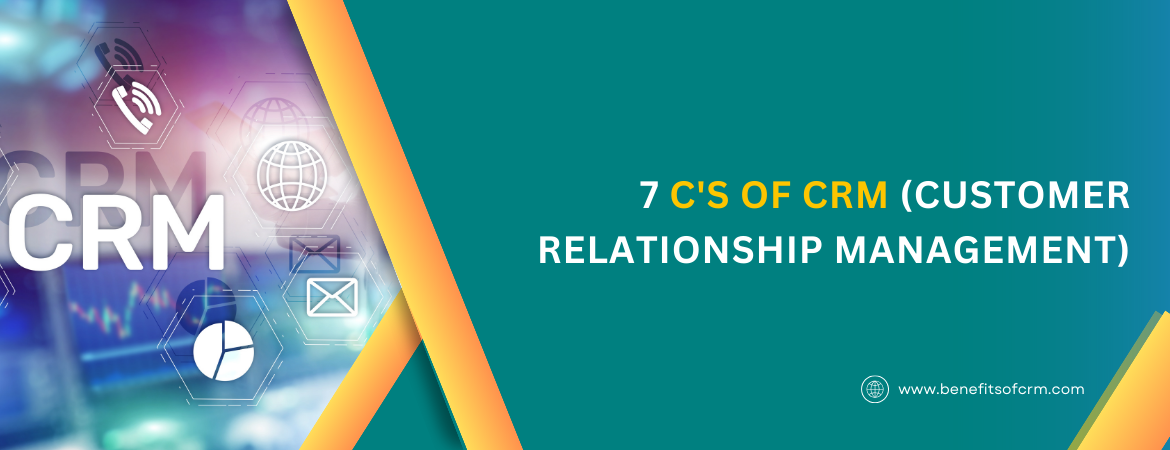In today’s digital age, cultivating strong relationships with customers is more crucial than ever.
The 7 C’s of Customer Relationship Management (CRM) offer a strategic roadmap for businesses to not only understand but also engage with their audience effectively.
By delving into these foundational principles, companies can harness the true potential of CRM, fostering loyalty and driving growth.
Let’s embark on a journey through these pivotal elements that promise to redefine customer-centricity in the modern world.
Table of Contents
7 C’s of Customer Relationship Management
Customer Information
Understanding Customer Demographics and Behavior:
Knowing your customer forms the backbone of effective CRM.
Dive deep into demographics, like age groups, locations, and interests, to paint a vivid picture of who your audience is.
Pair this with their buying habits, online behaviors, and feedback to craft an even richer portrait.
This multidimensional understanding can guide future interactions, making them more meaningful.
Collecting Relevant Data for Personalized Interactions:
Today’s consumer doesn’t just want service; they desire a tailored experience.
The cornerstone of this customization is the careful gathering of relevant data.
Every click, purchase, and feedback can be harnessed to create interactions that resonate deeply, making the customer feel truly seen.
Importance of Accurate and Up-to-Date Information:
Ever-evolving customer preferences necessitate data that is both current and accurate. Outdated or incorrect data could mean lost opportunities or, worse, a damaged relationship.
Regularly refreshing this information ensures businesses are always in sync with their customers.
Contact Management
Centralizing Customer Contact Points:
Picture this: one unified hub where all customer interactions, be it via phone, email, or social media, are logged and easily accessible.
This centralization fosters efficiency and provides a panoramic view of the customer’s journey.
Streamlining Communication Processes:
An organized communication pipeline eliminates redundancies and ensures that no customer query goes unanswered.
Streamlining these processes ensures that each customer touchpoint is timely and impactful.
Ensuring Consistent Customer Experiences:
Consistency breeds trust.
By having a unified contact management system, businesses can offer a uniform and consistent experience, bolstering customer confidence and loyalty.
Communication
Using CRM to Tailor Communication:
Every customer is unique, and CRM systems can tap into this individuality.
They analyze collected data to craft communications that resonate with each customer’s specific needs and preferences.
Enhancing Communication Channels for Efficiency:
In the fast-paced digital age, agility is key.
Optimize communication channels, whether that’s speeding up response times or making platforms more user-friendly, to keep the conversation flowing smoothly.
Importance of Timely and Relevant Messaging:
It’s not just about reaching out; it’s about reaching out right.
Timely, pertinent messaging can be the difference between a missed opportunity and a loyal customer.
Customer Service
Leveraging CRM to Enhance the Service Experience:
A CRM system is a treasure trove of insights.
Tapping into this can help businesses anticipate customer needs, address pain points, and exceed service expectations.
Tracking Service Requests and Feedback:
Every service request or feedback is an opportunity to learn and grow.
Track these diligently to continually refine the customer service process.
Using Data to Improve Service Processes and Responsiveness:
Data-driven decisions are the hallmark of forward-thinking businesses.
Use customer data to pinpoint areas of improvement and to craft swifter, more effective service responses.
Collaboration
Facilitating Internal Collaboration Between Departments:
When departments collaborate, magic happens.
Break down silos to ensure that everyone, from marketing to sales, is on the same page regarding customer interactions and needs.
Sharing Customer Insights and Feedback Across Teams:
Shared knowledge is amplified knowledge.
Distribute customer insights across teams to foster a unified, customer-centric approach.
Collaborating with Customers for Feedback and Co-creation:
Customers aren’t just recipients of products or services; they can be co-creators.
Engage with them to gather invaluable feedback and even co-create solutions.
Customization
Personalizing Marketing, Sales, and Service Efforts:
The age of one-size-fits-all is over.
Harness CRM data to tailor every aspect of the business, from marketing campaigns to sales pitches, ensuring they resonate deeply with each customer.
Using CRM Data to Tailor Product/Service Offerings:
Every piece of CRM data is a clue into what customers truly desire.
Use these insights to refine or even reinvent product or service offerings, ensuring they hit the mark every time.
Benefits of Individualized Customer Experiences:
When customers feel seen and understood, they engage more deeply.
Individualized experiences not only boost satisfaction but also foster loyalty, driving long-term business growth.
Continuity
Ensuring Consistent and Seamless Customer Interactions Across All Touchpoints:
From the first ad a customer sees to the post-purchase service they receive, ensure every interaction is seamless and consistent, painting a cohesive brand picture.
Utilizing CRM for Long-Term Relationship Building:
CRM isn’t just a tool for immediate sales.
With its treasure trove of data, it’s a bridge to building long-lasting, meaningful relationships with customers.
Importance of Adapting and Evolving with Changing Customer Needs:
As the world evolves, so do customer needs.
Stay nimble, using CRM insights to adapt, ensuring the business remains relevant and resonant.
Final Note:
In an era where the digital landscape is ever-evolving, the essence of successful business remains constant: forging genuine, enduring relationships with customers. The 7 C’s of CRM illuminate the path to achieve this.
By understanding, managing, communicating, serving, collaborating, customizing, and ensuring continuity, businesses can navigate the complexities of the modern market.
These foundational principles, when embraced wholeheartedly, promise not just transient success but lasting growth and customer loyalty.
As we journey forward, may we always remember that at the heart of every transaction is a human connection, and CRM is our compass to nurture it.
